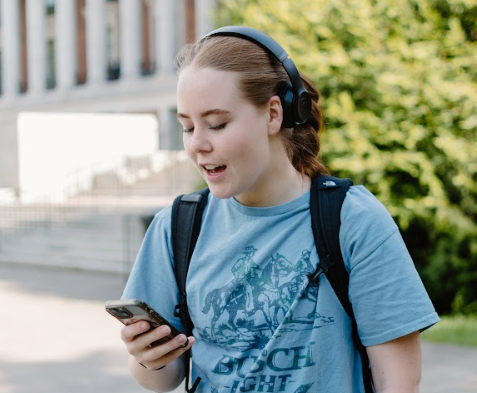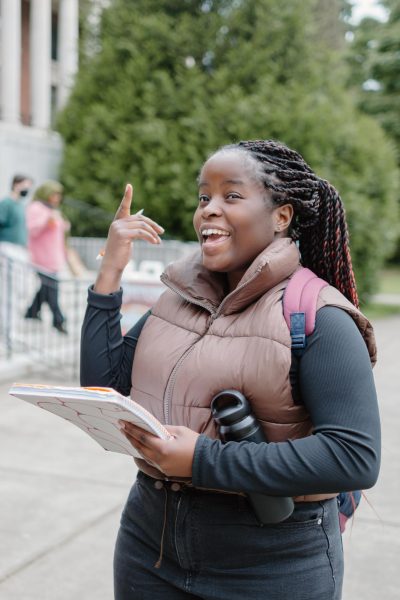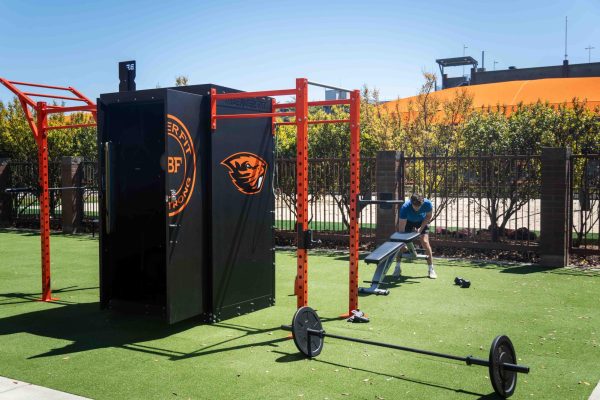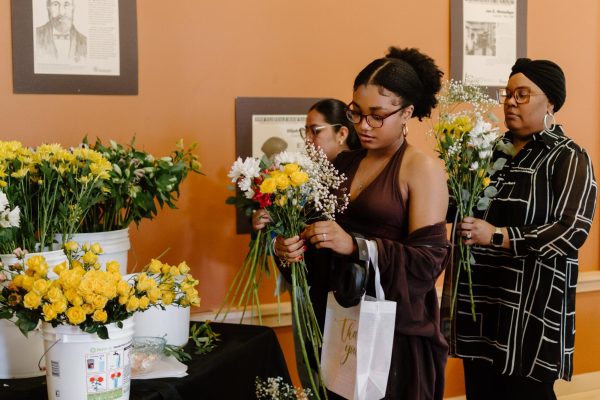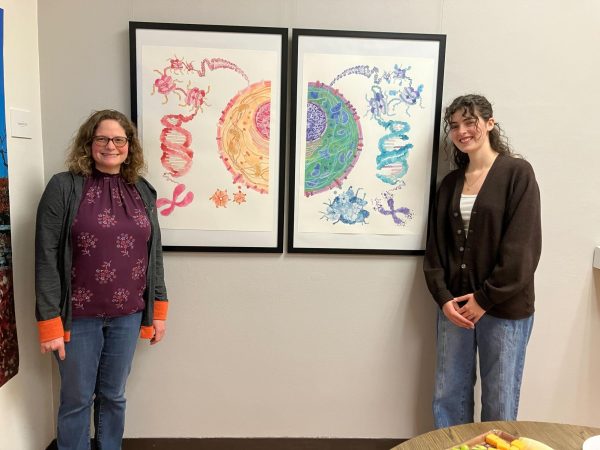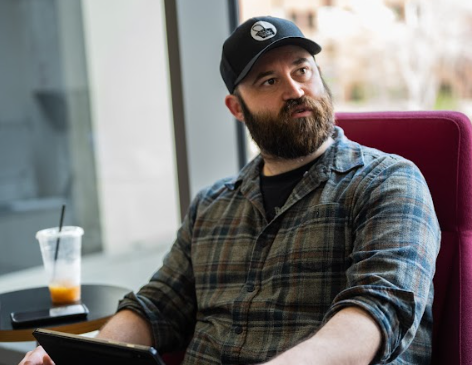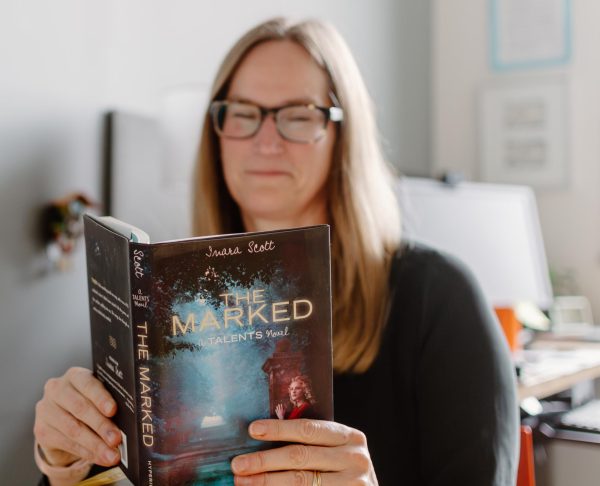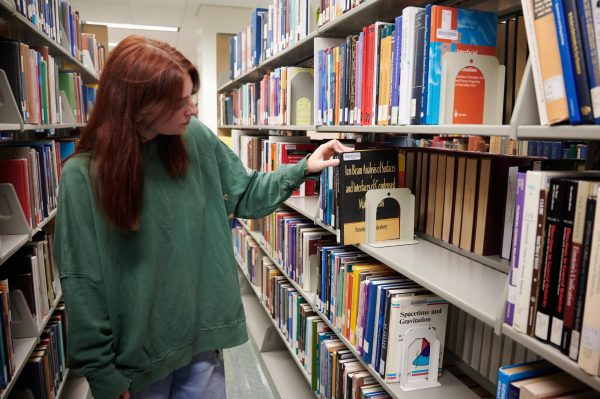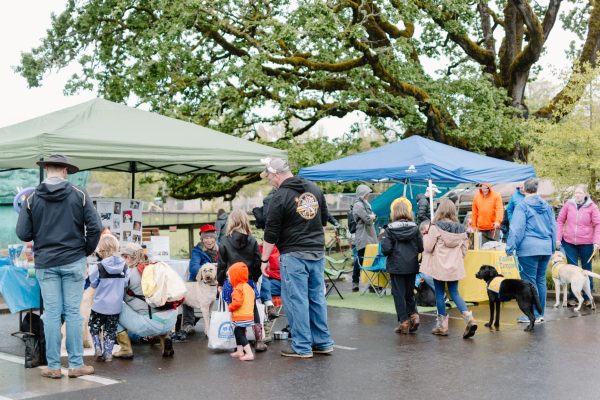Reporting sexual misconduct
How to navigate one of the most pervasive incidents on campus
Editor’s note: This story contains general mention of sexual misconduct incidents to outline on- and off-campus reporting options available to Oregon State University students.
Odds are, you know someone who has experienced some form of sexual violence or predatory behavior — maybe they were roofied at a party, stalked home, or simply physically or violently coerced into an unwanted situation.
According to a 2020 report from the Association of American Universities, among undergraduate students, 26.4% of females and 6.8% of males experience rape or sexual assault through physical force, violence or incapacitation.
Being aware of local resources that support survivors could prove crucial for your time in college, whether it’s for yourself or for your efforts to support a loved one.
Allison Wilson, the director of Survivor Advocacy and co-director of the Center for Advocacy, Prevention and Education, said each survivor’s journey will look vastly different and there is no right way to navigate personal safety.
For some survivors, safety looks like exploring alternative housing options, for some it means seeking therapeutic support, for others it is reporting to the university or navigating the criminal legal system.
One path can also be learning about all of the available options, so when a survivor or supporter is ready to take another step, they are aware of what is out there. To help with that, we’ve compiled a list of available local reporting options.
CONFIDENTIAL COUSNELING: INTERPERSONAL VIOLENCE SERVICES AT COUNSELING & PSYCHOLOGICAL SERVICES
“The first step I would encourage a student to consider is thinking about the supports they have in place and whether they would want to invite a friend or other trusted person to go with them in reporting or get connected with the CAPE advocates for support,” Brittany Coté, the interim interpersonal violence services coordinator at CAPS, said.
Interpersonal Violence Services at CAPS provides a confidential, trauma-informed, and safe place for student survivors to process their thoughts, reactions and
emotions, Coté said. IVS clinicians will support the student in their recovery choices including the challenging process of reporting sexual misconduct.
Many OSU employees are mandatory reporters, as per the Responsible Employee Policy, so it’s important to ask “confidential” sources if they fall under that category, depending on the situation you’re in. This is further explained here: https://eoa. oregonstate.edu/responsible-employee-policy.
CONFIDENTIAL COUNSELING: CENTER FOR ADVOCACY, PREVENTION & EDUCATION
“We are here for you!” Wilson said. “Advocates are here to talk through all of the options that are available to someone, and then to be with them as they choose what steps they would like to take.”
On the CAPE website, survivors can find a complete resources list with reporting options on campus and in the community.
“Survivors are able to report harm that has been caused to them through the Office of Equal Opportunity & Access, Student Conduct and our Department of Public Safety,” Wilson said.
Through all of those processes, survivors are able to have an advocate with them to provide support before, during and after reporting.
REPORTING ON CAMPUS: DEPARTMENT OF PUBLIC SAFETY AT OSU
According to Lieutenant Jim Yon with OSU DPS, a student can reach out to Campus Safetyatanypointduringthedayornight. Initialstepscanbeassimpleasaphonecall to the DPS dispatch center at 541-737-3010.
If someone decides to report an incident of misconduct to DPS, Yon said they would begin
an investigation by gathering as much info from the survivor as possible, and advise them to visit Sarah’s Place if needed.
Sarah’s Place is a regional sexual assault nurse examiners center in Corvallis created to provide a safe place for victims of sexual assault to receive resources and care.
“They will do an assessment and collect any evidence,” Yon explained. “They will seal up the evidence and then call the law enforcement entity that has jurisdiction over where the incident took place. We (at DPS) do not know who the survivor is, but we get to seize and keep the evidence. This is important because a survivor might wait a couple years before reporting. We at least have the evidence from the incident that may help prove the case.”
As part of the reporting process, DPS would interview any witnesses or potential witnesses, using technology to find locations and other information. They would put the case together and then take it to the District Attorney’s office for possible prosecution, after which the court processes would start.
“Our judicial system is difficult to maneuver,” Yon said. “We try hard to limit the number of times a survivor must talk about (the) incident. Sometimes survivors seek counseling prior to reporting and that is perfectly fine. I would never force or try to make someone feel like they must report it. It is an individual decision, and it is a difficult decision because you are putting yourself out there.”
REPORTING ON CAMPUS: OFFICE OF EQUAL OPPORTUNITY & ACCESS
“EOAistheuniversityofficeresponsiblefor respondingtoconcernsofsexualmisconduct, discrimination, and discriminatory harassment,” explained Becky Bangs, the director of investigations and deputy Title IX coordinator.
The term sexual misconduct includes dating or intimate partner violence, stalking, sexual harassment and non-consensual sexual touching or behaviors.
“Students are always welcome to reach out to us with questions or for consultation,” Bangs said. “No student impacted by problematic behavior is ever required to meet with us and they are not required to tell us the names of other people involved or specific details of what occurred. Our first focus is to provide information on resources, rights and options. We will invite the student to meet with us (via Zoom, in person or a phone call) to discuss with us what they are needing and wanting.”
EOA can refer individuals to appropriate resources, provide an array of support options, including but not limited to:
○ issuing a mutual no contact directive between involved individuals
○ providing assistance dropping/changing classes, moving residence halls, changing shifts at work, etc.
○ discussing resolutions options, including informal resolution or an investigation
When the allegations reported suggest an OSU policy may have been violated, EOA is able to engage in an investigation into the reported concerns. Investigations are an in-depth process which involve putting the respondent on notice of the allegations, interviewing all involved individuals and witnesses, collecting evidence, determining if the information collected suggests a policy was violated and writing an investigative report.
An investigation may take several months to complete and is the only process that would lead to an OSU student or employee being formally disciplined, up to suspension/expulsion or termination.
“If someone’s concern is about something else, we will work to get them connected to the office best suited to support them (student conduct, HR, CAPE, Office of Advocacy, external-to-OSU resources, etc.),” Bangs said.
Students can report to EOA anonymously (or not) via their online reporting form found under Quick Links on their main page: eoa.oregonstate.edu. EOA is located in 330 Snell Hall and is available between Monday and Friday from 8:30 a.m. to 4:30 p.m. or at [email protected].
EOA does not automatically share information with law enforcement without a student’s permission except as required by law, e.g. to report child abuse or when there is an active threat to campus safety.
OFF-CAMPUS REPORTING: CORVALLIS POLICE DEPARTMENT
In an emergency, always call 911, but for non-emergencies, you can call the CPD at 541-766-6924 or visit https://www.corvallisoregon.gov/police. CPD provides 24/7 emergency response and enforcement of criminal law, and you can contact CPD to report a crime that occurred off campus.
For information on protective or restraining orders outside of campus, you can call the Benton County Courthouse at 541-388-5300 or visit https://www.co.benton.or.us/publicworks/page/courthouse.
Protective orders are available to help survivors of domestic violence, sexual assault, stalking, elder abuse and persons with disabilities experiencing abuse. You can contact CAPE or EOA for more assistance with obtaining a protective order.
GENERAL ADVOCACY: ASSOCIATED STUDENTS OF OSU, OFFICE OF ADVOCACY
Visit https://asosu.oregonstate.edu/advocacy to find an advocate for support with EOA cases.
LEGAL ADVOCACY AID ON CAMPUS: ASOSU STUDENT LEGAL SERVICES
If you’re an OSU student, you can visit https://asosu.oregonstate.edu/asosu/legalservices for free confidential legal advice, document review, and representation when you have a dispute not related to the university.
LEGAL ADVOCACY AID OFF CAMPUS: BENTON COUNTY VICTIM’S ASSISTANCE PROGRAM
Visit https://www.co.benton.or.us/da/page/victim-assistance-program if you’re looking for support in navigating the criminal justice system, understanding your rights and to be referred to resources and assistance.



